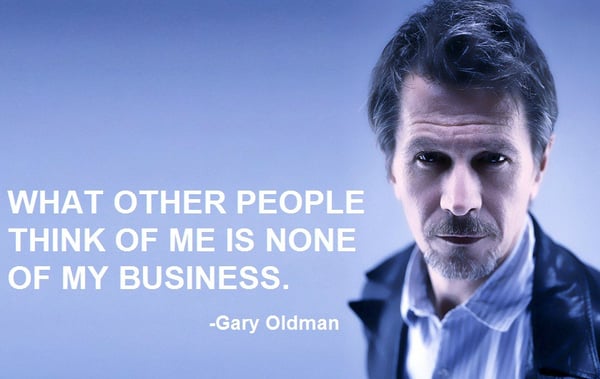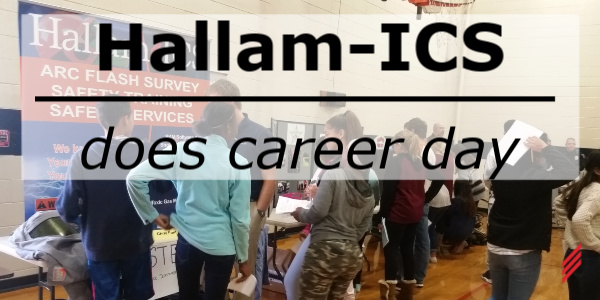You Talkin’ ‘Bout Me?
by Dan Herzig on Oct 25, 2018 10:30:00 AM

"You talkin' to me? You talkin' to me? You talkin' to me? Then who the hell else are you talkin' to? You talkin' to me? Well I'm the only one here. Who the f*@# do you think you're talking to?" -Travis Bickle (Robert De Niro), Taxi Driver
This quote can be read, “You talkin’ ‘bout me?” The other day a good friend of mine, who is a professor at the university level, was recalling how a group of females in her class were giggling together in the back of the room. She told how it brought up insecurities in her as she wondered to herself, “are they laughing at me?” This brought up thoughts for me as well. I recalled early positions as a new leader of an engineering design team and as a high school geometry teacher. I remembered instances when I wondered the same thing and my own insecurities bubbled to the surface.
When I was put in charge of my first design team, I remember driving home on many days replaying instances when I had walked into a room and conversation suddenly halted. Or when my staff would be whispering to each other, but not inviting me in on the conversation. I would have miniature panic attacks in my car with my stress level spiking while I tried to recall everything I did that could have been interpreted as dumb and stupid. I would put words in the mouths of the people having the conversations and, like puppets, make them say embarrassing things about me, my management abilities and even my personal traits and the way I dressed. Reality was that I had no idea what or who they were talking about.
After this went along for a while, I finally asked myself the question, “are they really, actually talking about me?” Surprisingly, the answer was “yes, of course they’re talking about you; you are the boss.” And it was completely freeing. Some of the time, maybe most of the time, they were probably talking about other things. Sometimes, they were certainly going to be talking about me. I remembered coming up through the ranks and both listening and partaking in conversations about the bosses I had. Virtually none of them were immune to at least some gossip, even the good ones. Conversations regarding what the boss might want or how they might want us to respond in a certain situation were common. This sealed in my mind that staff would also speak about me and there was nothing I could do about it. It was completely out of my control, and I had to let it go.
In the mid-2000’s I had an opportunity to teach in a private high school. If you think adults can be intimidating, try leading, and sometime herding, a large group of humans old enough and bold enough to speak their minds and at the same time young enough to believe they rule the world and voice themselves en masse and without filtering. “Utterly frightening” might be a better descriptor than simply intimidating.
I quickly realized that making an immediate decision to accept being the brunt of whispered jokes, the topic of pre-class conversations and the target of outright direct verbal outbreaks was something I could accept as standard operating procedure. My strength and my leadership would not be swayed by what others’ murmuring might be saying. A quote attributed to British Actor Gary Oldman says, “What other people think of me is none of my business.” This allowed me to teach as I saw fit; bold, caring and inclusive, not timid, aloof and frightened.
In a way, I think this is a particular version of compartmentalizing. It allows separation of how others think of me from my own self-worth; it keeps the worth I hold in my beliefs and values in a place where it can be visible to the world, but completely protected. It is like the Hope Diamond in Washington, D.C.; on display for the entire world to see at absolutely no charge, but guarded 24 hours a day and behind thick bullet-proof glass. Letting others freely have their opinions of me allows me to be free of the chains and shackles required to please everyone by trying to be somebody I am not.
About the author
Dan has been in the building industry since 1984 and has engineered mechanical and electrical systems ranging from homes and retail to laboratory and clean manufacturing. His projects range from a few hundred square feet to nearly a million. He prides himself in providing detailed design solutions and explicit problem solving that fit each of his clients’ specific needs. In his role as a leader, he institutes systems that allow projects to run more smoothly with fewer field issues and on-time delivery.
Read My Hallam Story
About Hallam-ICS
Hallam-ICS is an engineering and automation company that designs MEP systems for facilities and plants, engineers control and automation solutions, and ensures safety and regulatory compliance through arc flash studies, commissioning, and validation. Our offices are located in Massachusetts, Connecticut, New York, Vermont and North Carolina and our projects take us world-wide.
You May Also Like
These Related Stories

Making Safety Seen on International Women in Engineering Day

Hallam-ICS Does Career Day



No Comments Yet
Let us know what you think